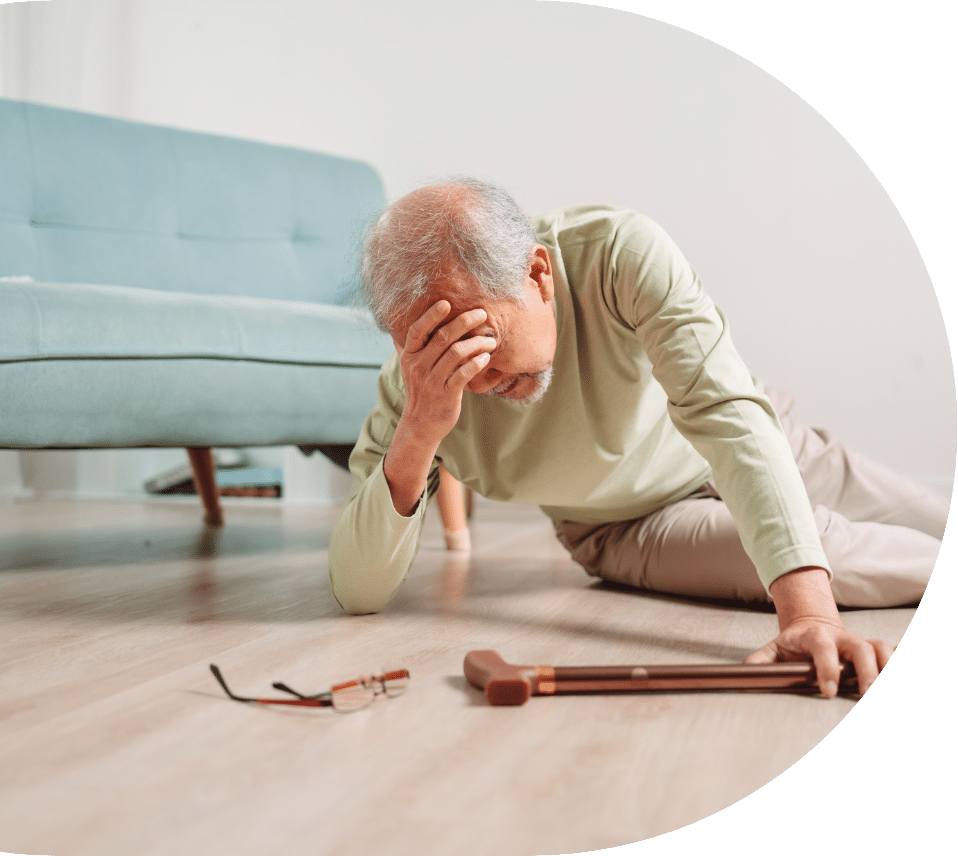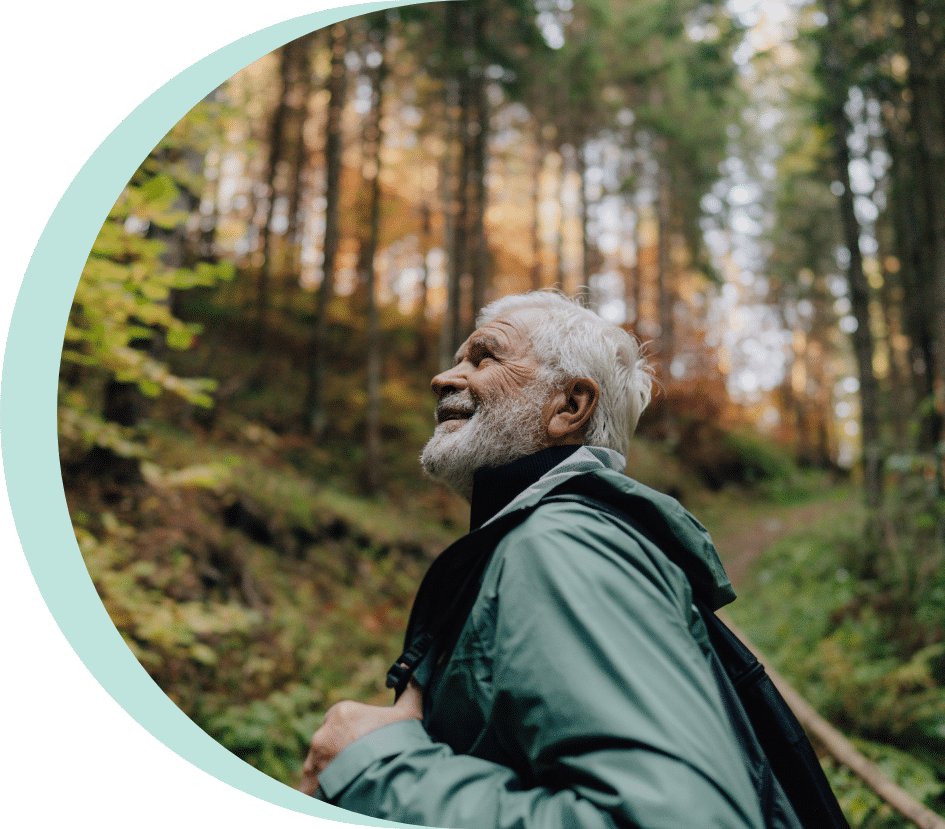Fall Prevention for Seniors
Falls are the leading cause of injury among adults 65 years or older in the United States, but many falls can be prevented with simple actions to manage fall risk. Having regular and open discussions about fall risks and prevention is a key step in avoiding the long-term disability that can result from a fall.

What Increases the Senior Fall Risk?
Falls are more likely due to a combination of factors such as frailty or symptoms of a chronic condition and external factors such as poor environmental lighting. The more risk factors a person has, the greater their chances of falling.
Risk factors for falls include:
- Age: As a person ages, there are reduced physical, sensory, and cognitive abilities resulting in a slower response to when a fall occurs.
- Medical Conditions: Conditions may cause symptoms that affect balance such as low blood pressure, dizziness, weakness, pain, or changes to sensation in the feet leading to falls. These conditions include cardiovascular diseases, chronic obstructive pulmonary disease (COPD), type 2 diabetes, arthritis, depression, and dementia.
- Medications: Medications may have side effects, some of which are more prone to adversely affect balance. Taking multiple medications (more than four) may also increase the risk of falls.
- Impaired mobility and gait: Any disability of lower limbs such as weakness, orthopedic disorders, or poor sensation is associated with a lack of gait stability and balance. Poor foot care such as overgrown toenails, deformity to joints on the feet, foot ulcers, or shoes that don’t fit properly can affect walking ability.
- Lack of Physical Activity: Multiple studies have found that individuals who are less active tend to be more prone to falls. Lack of activity can cause muscular weakness and loss of muscle mass and strength, which worsens functional decline.
- Poor Vision: Poor vision directly impacts fall risk. The risk may even be increased when vision is corrected with eyeglasses, specifically multifocal lenses. These lenses can impair the depth of perception and clarity of objects in the surrounding environment.

Tips for Managing Falls in Seniors
Depending on how severe the fall is, results can range from a minor scrape or bruise to a bone fracture or head injury. Whatever the severity, a few general steps should be taken after an individual experiences a fall including:
- Remain calm. A fall can be a shocking event, immediately after it is important to stay calm and remain on the ground for a few moments to gather your thoughts and process what has occurred.
- Determine if an injury has occurred. Do a complete body scan to determine if you are hurt before attempting to get up. If an injury has occurred, rushing to get up can cause it to get worse or result in another fall.
- Crawl to a sturdy chair if you can get up without help. Slowly position yourself on your hands and knees and crawl to a sturdy chair or piece of furniture, then slowly rise and take a seat. If at any point you feel dizzy or off balance, stop, and lay down on the floor until the dizziness subsides.
- Sit for a few minutes and reassess your condition. Once sitting, place both feet on the floor and take a few breaths in. Do another body scan checking for dizziness, blurry vision, or pain.
- If an injury has occurred or you are not able to get up, then call out for assistance. If significant trauma has occurred or if a family/caregiver is unable to assist in helping you get up, call 911 and wait for emergency services to arrive. If you are alone, remain on the floor and attempt to get in a comfortable position until help arrives.
Treatment and Fall Monitoring for Seniors
Falls are treated based on the severity of the impact of the fall. If there is no apparent injury, notify your healthcare provider to discuss the cause and risk factors associated with the fall. If an injury has occurred, then it is recommended to call 911 to be urgently evaluated.
Some individuals may feel embarrassed to notify their healthcare provider about falls and some providers may not routinely ask. However, it is important to bring it up for discussion so potential causes and education on fall preventive care can be addressed. The healthcare provider may suggest certain medical devices such as a wearable fall alert device, especially if the falls are recurring.
Fall monitoring for seniors include the following.
Senior Fall Prevention and Treatment at Greater Good
At Greater Good Health, we are committed to providing the highest quality care, including fall prevention in senior-focused primary care. Contact us today to find a primary care clinic near you and get started.

Our Senior Fall Treatment Services
At Greater Good Health, we prioritize the well-being and safety of our elderly community members in our senior primary care. From personalized assessments to customized intervention plans, we strive to create a secure environment for our seniors, promoting independence and enhancing their overall quality of life.